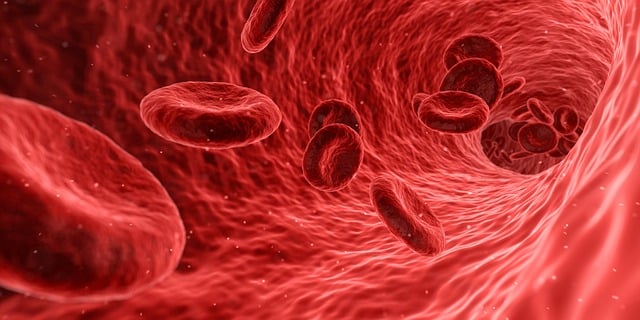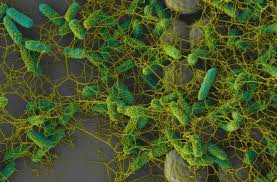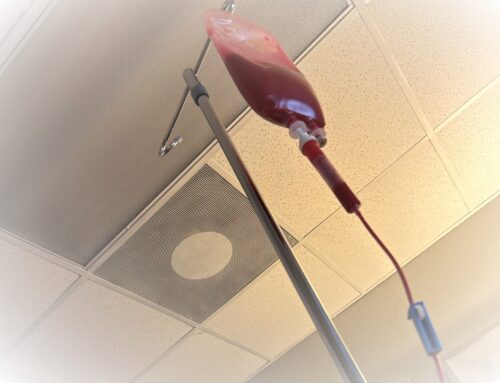Let’s talk about hypercoagulation. Now, I realize this is a mouthful. So, let’s break down what hypercoagulation means and how it impacts your health.
Hypercoagulation = thick, sticky blood.
A closer look reveals the huge impact that hypercoagulation has on our health because it increases our risk for cardiovascular disease and chronic infections.
There is a cascade of events orchestrated by your genetics and/or the environment that takes place in your blood, which either makes your blood sticky and thick or thin and fluid. If you tend to make thicker blood, there is often a build-up of fibrin, which is an insoluble protein formed from fibrinogen during the clotting of blood. The more fibrin you create and are unable to dissolve, the more hypercoaguable (or thicker) your blood. The thicker your blood, the greater your risk for cardiovascular disease (because fibrin builds up in your arteries), clot formation, circulation problems, and stroke. Interestingly, certain disease states are considered to cause hypercoagulation, i.e. cancer and chronic infections, such as Lyme, and certain conditions can be chronic because of hypercoagulation, including urinary tract infections, vaginal infections, chronic sinusitis, to name a few.

A hypercoaguable state can also lead to the formation of biofilms. Biofilms are not like plastic wrap, as the word itself may sound. Biofilms are three dimensional structures (see picture below) your body creates to block your immune system from seeing an infection or a colonization of fungus, for example. They can be in your sinuses, GI tract, mouth, bladder, vagina, prostate, and inside vessels of your circulatory system. Once you have a biofilm, and many of us do, it can be difficult to fully eradicate an infection, such as Lyme or candida, because it is difficult to get an antibiotic or herb behind the biofilm to treat the infection.

If you have a chronic bacterial or yeast infection, have a family history of cardiovascular disease, including atherosclerosis, stroke, heart attack, or hypertension, chronic urinary tract infections, or prostatitis, you could have a biofilm. I suspect that many of our patients with difficult-to-treat infections and cardiovascular disease have this genetic issue, which has inhibited the full resolution of their health concerns.
Through genetic testing and blood work, we can now identify if you have an issue breaking down fibrin and thus, a propensity to form biofilms. Certain markers on a stool test will also tell us if you are a biofilm former. The great news is that once we identify this issue, we will prescribe enzymes and other products to break down these biofilms, binders to protect you from the release of the unresolved infectious agents, and the appropriate treatment to finally eradicate long standing infections. Then, you can truly and completely get better. We are already seeing improvement in many of our patients, who have undergone this testing and treatment over the last 6 months.
If you have any of the following conditions, you might be a good candidate for testing to screen for hypercoagulation:
- Chronic fatigue
- Fibromyalgia
- Lyme disease and coinfections
- Candida/yeast infections
- Chronic recurrent UTIs
- Chronic recurrent vaginal infections
- Chronic sinusitis
- Unexplained elevation in Total cholesterol, LDL, and/or Lipoprotein(a)
- Family history of cardiovascular disease, artherosclerosis, stroke, and hypertension
Call us today to have us order laboratory testing that can identify if you are a biofilm producer and have hypercoagulation.
~ Dr. Mary Shackelton



